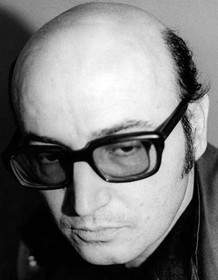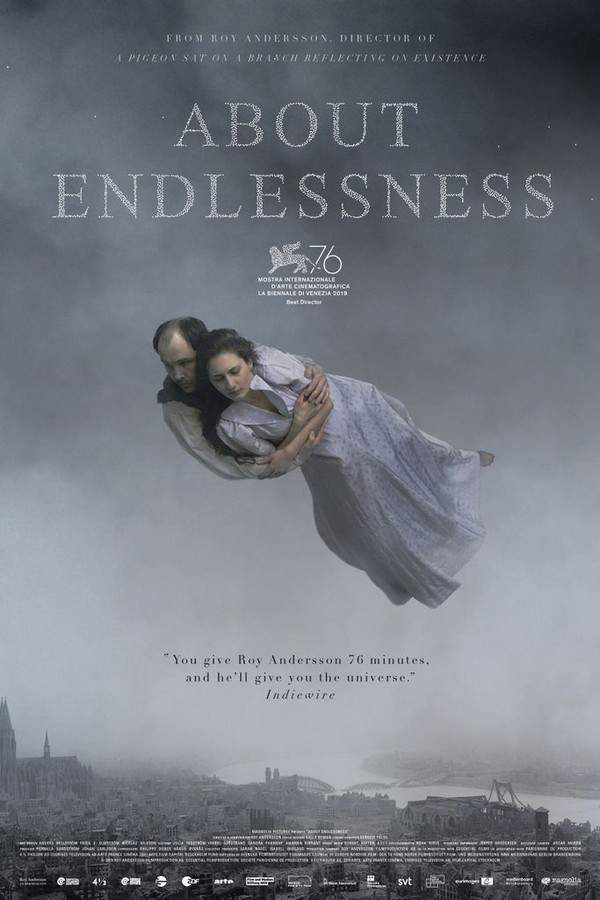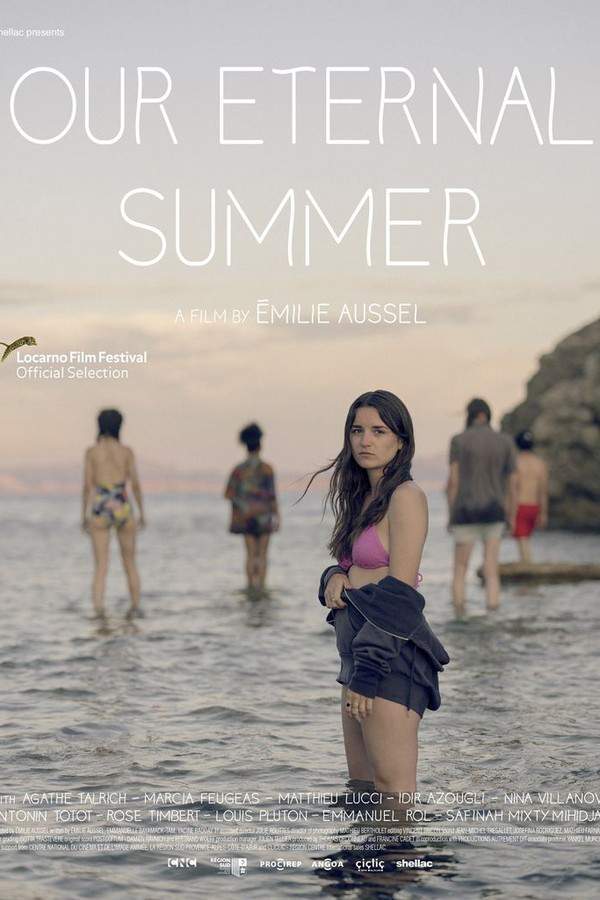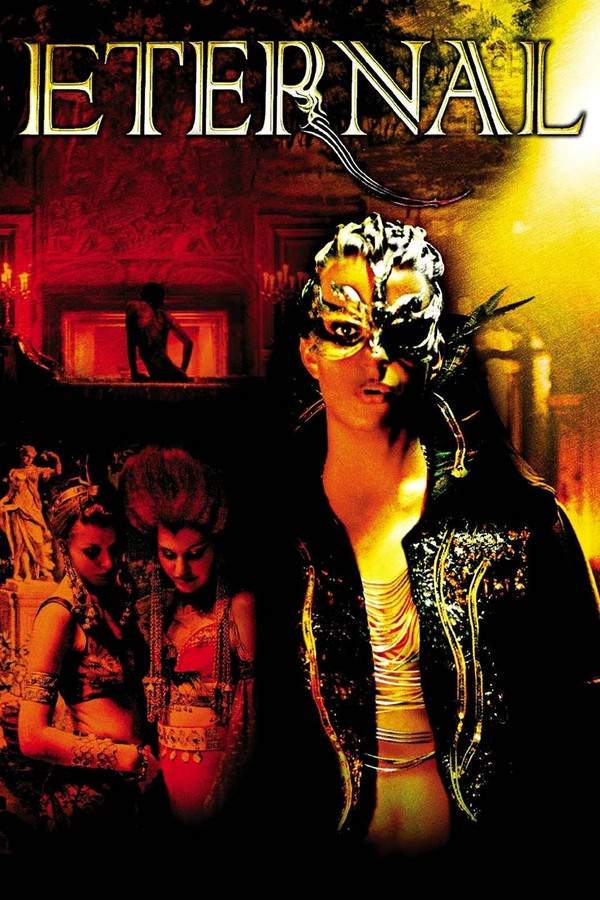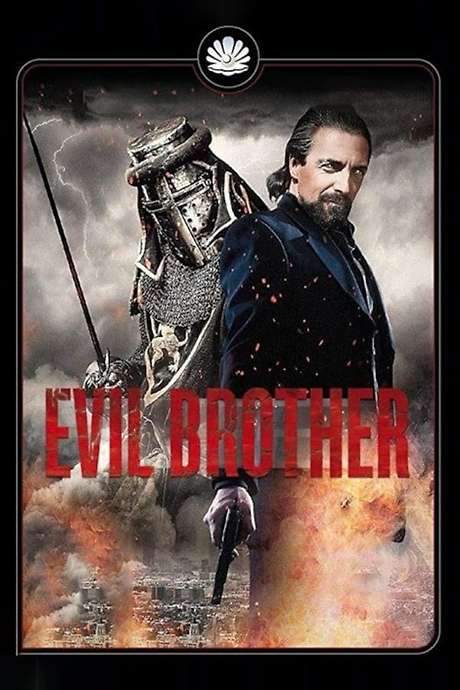Eternity and a Day 1999
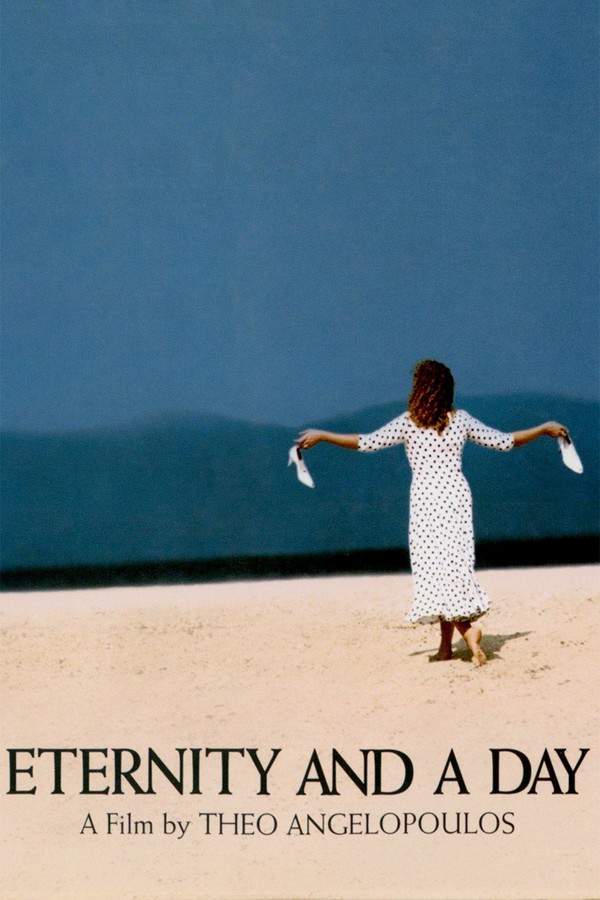
A celebrated writer grapples with his own mortality while striving to finish the works of a deceased poet. He becomes involved in the life of a young boy, attempting to safeguard him from a precarious situation. Through this experience, he reflects on the fleeting nature of both life and artistic creation, ultimately seeking a lasting impact beyond his own existence.
Does Eternity and a Day have end credit scenes?
No!
Eternity and a Day does not have end credit scenes. You can leave when the credits roll.
Meet the Full Cast and Actors of Eternity and a Day
Explore the complete cast of Eternity and a Day, including both lead and supporting actors. Learn who plays each character, discover their past roles and achievements, and find out what makes this ensemble cast stand out in the world of film and television.
External Links and Streaming Options
Discover where to watch Eternity and a Day online, including streaming platforms, rental options, and official sources. Compare reviews, ratings, and in-depth movie information across sites like IMDb, TMDb, Wikipedia or Rotten Tomatoes.
Ratings and Reviews for Eternity and a Day
See how Eternity and a Day is rated across major platforms like IMDb, Metacritic, and TMDb. Compare audience scores and critic reviews to understand where Eternity and a Day stands among top-rated movies in its genre.

80
Metascore
8.8
User Score


95%
TOMATOMETER

93%
User Score

7.9 /10
IMDb Rating

78
%
User Score
Take the Ultimate Eternity and a Day Movie Quiz
Challenge your knowledge of Eternity and a Day with this fun and interactive movie quiz. Test yourself on key plot points, iconic characters, hidden details, and memorable moments to see how well you really know the film.
Eternity and a Day Quiz: Test your knowledge on the themes, characters, and events of the poignant film 'Eternity and a Day'.
What is the name of the main character in 'Eternity and a Day'?
Alexander
Urania
Katerina
Selim
Show hint
Full Plot Summary and Ending Explained for Eternity and a Day
Read the complete plot summary of Eternity and a Day, including all major events, twists, and the full ending explained in detail. Explore key characters, themes, hidden meanings, and everything you need to understand the story from beginning to end.
“Eternity and a Day” (1998) stands out as one of the most approachable films by Theodoros Angelopoulos. The narrative unfolds with the enchanting image of a grand old house, accompanied by the evocative strains of the film’s central musical theme. We hear a young boy’s voice-over, beckoning young Alexander to accompany him to explore “an ancient city under the sea.” With mischievous excitement, Alexander tiptoes past his parents’ bedroom, where muffled laughter can be heard emanating from within. He bursts outside onto a small wooden dock leading to the beach and joins his friends, shedding his shorts before all three plunge into the welcoming sea.
Quickly, the scene shifts to reveal Alexander, portrayed by Bruno Ganz](/actor/bruno-ganz), now an elderly man settled comfortably in an armchair. He is roused from his reverie by Urania, his dutiful housekeeper (Helene Gerasimidou). “This is the last day,” she gently reminds him, pressing for permission to accompany him to the hospital. In a moment rich with philosophical reflection, Alexander courteously declines her offer, expressing gratitude for her three years of dedicated service. After Urania exits the room, she returns momentarily to share one last intimate glance at him, ostensibly to remind him to feed his dog, before she discreetly departs once more. Alone, Alexander savors the last remnants of his coffee as the camera glides toward the balcony, revealing his dog resting and the expansive sea vista beyond. Fragmented echoes of the same music he played earlier dance through from a nearby apartment, prompting Alexander to ponder its mysterious origin.
As he takes his dog for a stroll along the harbor, Alexander’s thoughts turn to his late wife, Anna (Isabelle Renauld), and the unfinished manuscripts scattered through his life. His drive through the city leads him to encounter a young boy, portrayed by Ahilleas Skevis, clad in an overly large yellow parka, attempting to wash his windshield amidst the chaos of traffic. The fleeting moment of connection allows Alexander to rescue him from the hands of the police, inviting him into his car. Despite language barriers, a gentle smile exchanges gratitude between the boy and Alexander before the youth darts away, leaving us to ponder the depths of his name and history.
Upon meeting his daughter, Katerina (Iris Chatziantoniou), Alexander expresses his urgency to travel and requests that she care for his dog, a plea met with resistance as her husband prefers no animals in their home. This familial interaction opens the door to memories of a past love and unfinished projects, notably his intentions to complete “Free Besieged,” a revered poem by Dionysios Solomos. With a heavy heart, Alexander steps into a moment from the past, as Katerina reads one of her mother’s nostalgic letters, capturing the emotions of a time long gone.
The hours of the day unfurl his life experiences as he remembers chaotic family gatherings and the fleeting joys of each moment, bringing to light the sorrow of his unfinished growth. As he contemplates the imminent demolition of his cherished childhood home, the weight of nostalgia settles heavily upon him. His journey later intertwines with a gripping turn of fate when he finds himself witnessing the abduction of the boy in the yellow parka, leading him to a suspenseful rescue mission that uncovers the dark realities of child trafficking.
Their trek toward freedom soon disrupts, where a poignant moment reveals the boy’s fabricated tales of a safe haven beyond the border, igniting Alexander’s struggle with his own conscience and emotions. This thread of escapism propels both characters in search of connection, leading to a series of adventures that deepens their bond, filled with conversations that transcend language and delve into the intricacies of loss, war, and a shared longing for belonging.
As events unfold—ranging from spontaneous moments of humor during their travels to heart-wrenching scenes of farewell—the audience is drawn into a profound tale, culminating in a ritualistic cremation of the boy’s friend, echoing the themes of death and rebirth that persist throughout Alexander’s life. The resolution of their journey introduces contemplations on the essence of time, family relations, and the quest for meaning, all encapsulated within Alexander’s poignant soliloquies on life’s injustices.
In the film’s mesmerizing conclusion, a harrowing yet poetic return home evokes the haunting memories of his beloved Anna. An introspective closing scene illustrates the infinite connection between past and present, love and loss; as the voice of Anna resonates in harmony with his thoughts. Amidst it all, one question lingers—“How long does tomorrow last?” As Alexander, now alone, gazes at the sea, he softly whispers his longing: korphoula mou (my little flower), completing the cycle of eternal love and the day that lasts forever in his heart.
Uncover the Details: Timeline, Characters, Themes, and Beyond!

Coming soon on iOS and Android
The Plot Explained Mobile App
From blockbusters to hidden gems — dive into movie stories anytime, anywhere. Save your favorites, discover plots faster, and never miss a twist again.
Sign up to be the first to know when we launch. Your email stays private — always.
Discover Film Music Concerts Near You – Live Orchestras Performing Iconic Movie Soundtracks
Immerse yourself in the magic of cinema with live orchestral performances of your favorite film scores. From sweeping Hollywood blockbusters and animated classics to epic fantasy soundtracks, our curated listings connect you to upcoming film music events worldwide.
Explore concert film screenings paired with full orchestra concerts, read detailed event information, and secure your tickets for unforgettable evenings celebrating legendary composers like John Williams, Hans Zimmer, and more.


Eternity and a Day Themes and Keywords
Discover the central themes, ideas, and keywords that define the movie’s story, tone, and message. Analyze the film’s deeper meanings, genre influences, and recurring concepts.
Eternity and a Day Other Names and Titles
Explore the various alternative titles, translations, and other names used for Eternity and a Day across different regions and languages. Understand how the film is marketed and recognized worldwide.
Similar Movies To Eternity and a Day You Should Know About
Browse a curated list of movies similar in genre, tone, characters, or story structure. Discover new titles like the one you're watching, perfect for fans of related plots, vibes, or cinematic styles.
Quick Links: Summary, Cast, Ratings, More

What's After the Movie?
Not sure whether to stay after the credits? Find out!
Explore Our Movie Platform
New Movie Releases (2025)
Famous Movie Actors
Top Film Production Studios
Movie Plot Summaries & Endings
Major Movie Awards & Winners
Best Concert Films & Music Documentaries
Movie Collections and Curated Lists
© 2025 What's After the Movie. All rights reserved.



